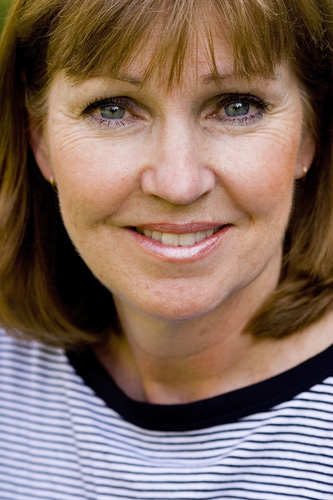 Living in Balance
Living in Balance
By Jenipher Appleton
Living in balance can be enhanced by our connections with nature. The way in which we are brought up can have a great impact on our view of natural surroundings. I am just a country girl, having lived in rural southwestern Ontario for the past 28 years. I was born and raised in Muskoka in a family of nature enthusiasts. I am also an elementary school teacher, and have been for so-o long that some of my students’ parents were taught by me. Yikes! Barring catastrophes, over the next series of articles I hope to share with you some insight and ideas for living in balance with the ecosystem.
Birding is one of the world’s fastest growing sports. Millions of people, through organized birding activities, contribute billions of dollars to the North American economy. This fact is a very hopeful sign for the birds themselves. You see, the more we know, observe and understand about our feathered friends, the better we are able to protect them for the future. Their presence here is a legacy which warrants our respect. At the rate we are destroying habitat with our daily activities, it is predicted that over the next hundred years we will lose 1200 species, or one in eight (R. Bateman, Birds).
Birding and ecology
Ignorance of how ecosystems work is directly related to the amount of negative impact we have on the earth and its species. Birding is a perfect vehicle to help raise awareness of ecology and nature’s delicate balance. My own interest in birds began early in life in the forests of Muskoka where my father taught me how to identify the names of the native species. He was exceptional at bird calls; whistling their specific song would often fool some of them to come in quite close. This provided us a much better look. Supplying me with books like Ernest Thompson Seton’s Wild Animals I have Known and a subscription to The Young Naturalist magazine also helped to instill a respect for wildlife in general.
Although cultivating a love of nature in the young is important, many nature converts do not embrace such activities until well into adulthood. It is never too late to take up a hobby; especially one that invites you into the great outdoors. Changing from a couch potato into a birder hiking through woods and fields can have incredibly positive health implications, both physically and mentally. Your blood pressure is bound to decrease and your sense of well-being to increase.
Sharing my enthusiasm with my own offspring is the ‘piece de resistance’. One night when our son Andrew was seventeen, he climbed a ladder outside to scrape some wet snow off the satellite dish. When he reached the top, his face was level with an open vent. Something caught his eye and he shone the flashlight inside. When he came back into the house he said, “Mom, you’ll never believe what I just saw!” He had come face-to-face with a screech owl seeking refuge from the snapping cold. The fact that Andrew was so excited by the encounter was a reward for me. I’m sure that it was not only the owl ‘whooo’ was wide-eyed.
Where to birdwatch
Birding opportunities in our immediate area are within easy reach. Visiting Point Pelee to see the spring and fall migrations, a Sunday drive to just north of Greenway to see the Tundra Swans, or Jack Miner’s naturalist museum at Kingsville are a few examples. Plenty of websites are at your fingertips to entice you further afield. However, so many species can be enjoyed right in our own back yards if we just create the habitat for them. Sure signs of spring are the rose-breasted grosbeak, white-throated and white-crowned sparrows, and goldfinches in their bright yellow plumage. I have filled the hummingbird and oriole feeders in anticipation of their arrival. One more example of trying to live in balance.

